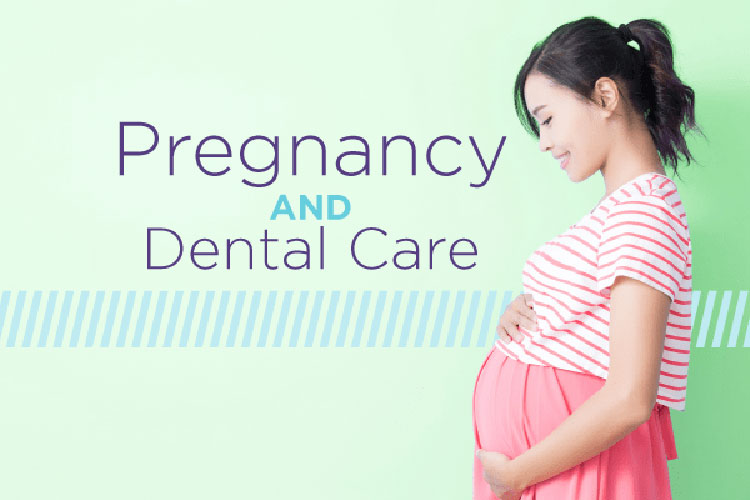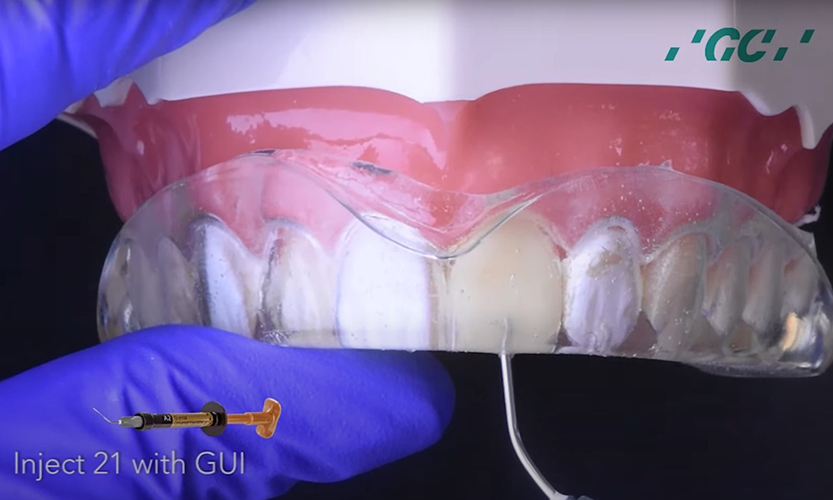Dental Care During Pregnancy
Oral health can vary during pregnancy, and St. Lawrence Dentistry would like to help make this period as pleasant as possible. Generally, pregnant women often feel extra conscious about their physical well-being because they are aware the unborn child’s health depends on how she takes care of herself. During pregnancy, dental treatment may be modified but need not be withheld, provided that the dentist makes a proper risk assessment for both the patient and the fetus. If you are pregnant, please alert the staff at St. Lawrence Dentistry.

Pregnancy causes profound and remarkable changes in all organ systems. There will often be an increase in total body water content and blood plasma volume. As a result, sometimes blood clotting effects are enhanced, leading to deep vein thrombosis and pulmonary edema. Proper monitoring by your medical doctor is essential. In addition, your heart’s capacity increases, and your respiratory capacity can decrease. All in all, the pregnant women that present for dental care at St. Lawrence Dentistry requires special consideration. It may require altering the timing and type of dental treatment and modification of drugs prescribed.
The primary concern of drug administration during pregnancy is the potential for adverse effects as most drugs can cross the placenta. Local anesthetics, analgesics, and antibiotics are the most commonly used drugs in dentistry. For most women undergoing pregnancy, local anesthetics are safe to administer, providing that they are used to minimize any risk of intravascular injection. At St. Lawrence Dentistry, we use Lidocaine, which is among the best local anesthetics for pregnant patients. Penicillin and Amoxicillin are the safest and most commonly prescribed antibiotics during pregnancy. “Tetracycline antibiotics” are not recommended during pregnancy because they are deposited in the fetus’s dental tissue, causing tooth discoloration. In addition, women undergoing pregnancy should avoid pain pills like Asprin and Ibuprofen.
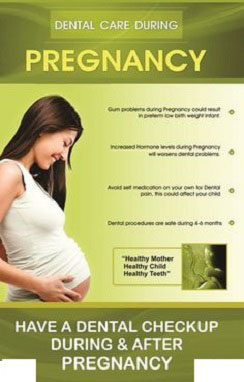
After a proper risk assessment, routine dental treatment is permissible during pregnancy. We may consult with your physician to clarify any individual issues you may have, especially in the case of dental emergencies during the first trimester. Unless emergency treatment is required, it is advisable to defer elective therapy during the first trimester because of potential vulnerability to the fetus. The second trimester is the safest time to perform routine dental care, as is the early part of the third trimester. However, no elective dental treatment is advisable during the late part of the third trimester.
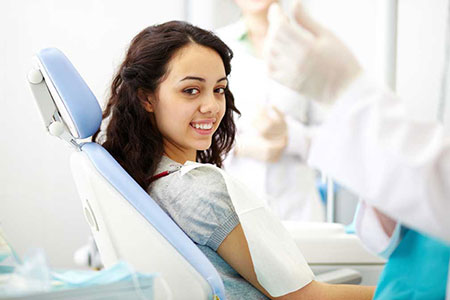
The key to managing your oral health during this period is understanding these changes and how vital an augmented oral care routine is. You will find your gums may be bleeding more during pregnancy because hormone levels change considerably during all trimesters. The inflammation partly results from mouth bacteria feeding on the extra hormones secreted during pregnancy and the overall increase of fluid levels in the body as the pregnancy progresses. Regular professional dental cleanings are an essential part of reducing inflammation during pregnancy. You may even find that your gums continue to bleed after the pregnancy as your body recovers. Dr. Hawryluk will assess your situation and see what is best to control inflammation.
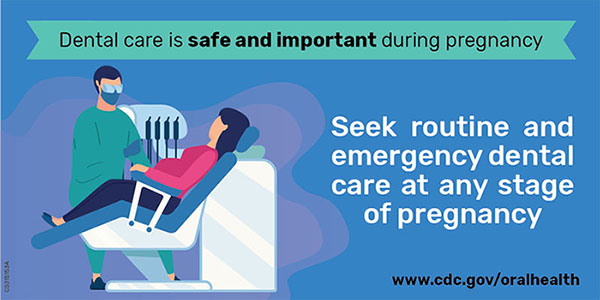
St. Lawrence Dentistry suggests scheduling an examination during the second trimester to diagnose your oral health. This visit may include light scaling, polishing, and a review of oral hygiene recommendations. Sometimes during pregnancy, our hygienists may recommend more frequent cleanings to keep your gums as least inflamed as possible. Our goal is to ensure healthy gums the whole way through pregnancy. In addition, please inform Dr. Hawryluk of all the drugs you take, including prenatal vitamins.
Patients often ask if it’s ok to take x-rays during pregnancy. It is generally safe to have minimal dental radiographs, although St. Lawrence Dentistry tries to avoid taking them, except in the case of a dental emergency. Treatment must be prompt if a patient has an acute infection (such as an abscess). If you require X-rays, you and your baby will be shielded from the low dose of radiation by a lead apron.
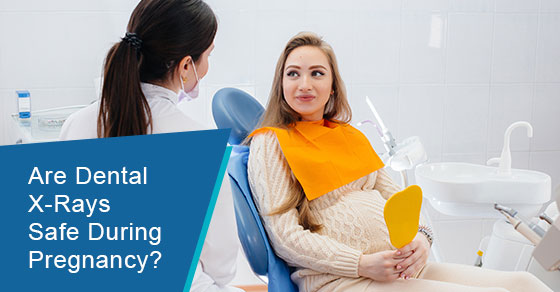
We suggest that pregnant women avoid sugary snacks to avoid developing tooth decay. While sweet cravings are usual during pregnancy, limiting foods high in sugar is best. Studies have shown that the bacteria causing tooth decay can pass from the mother to the child. A healthy, balanced diet is what pregnant women should have. Healthy diets containing dairy products, cheese, and yogurt are a good source of these essential minerals and are suitable for a baby’s developing teeth, gums, and bones.

Pregnancy can be a period of frequent vomiting for some women, impacting oral health. Stomach acid can damage the surface of your teeth and promote tooth decay. Dr. Hawryluk recommends rinsing with water right after a vomiting event and not brushing right away since doing so tends to brush the acids into the teeth. If vomiting is severe, you can rinse with a neutralizing rinse made by adding a teaspoon of baking soda to room-temperature water and swishing, then spitting.
It is common for patients to sometimes jokingly ask us if it’s true that each pregnancy causes the loss of a tooth. Of course, it is just an old tale passed on through many generations. The calcium needed to make your baby’s teeth comes directly from your diet, not from your teeth. However, if you don’t get enough calcium while pregnant, your body will provide this essential mineral from the calcium in your bones, putting your bones at risk. The best source of nutrients is a well-balanced diet, with a wide variety of fruits, vegetables, and dairy products. Unfortunately, this can be difficult to achieve if you suffer from nausea and vomiting. You may want to consider asking your obstetrician what additional supplements you may need.
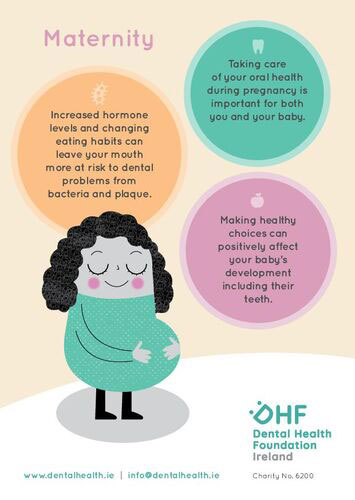
Establishing a healthy oral environment is the most important objective in planning dental care in pregnant patients. You can do this by adequate dental care comprised of tooth brushing, flossing, and professional hygienist visits. If you live in the Mississauga area and are looking for a dentist, we would be happy to work with you to achieve the best oral care regime during this special period and beyond.
References:
Ontario Dental Association, 2019
- Sleep Dentistry: Enhancing Comfort and Care During Dental Procedures - July 11, 2024
- The Revolutionary Injection Molding Technique for Composite Veneers - June 27, 2024
- Why Are Third Molars Called “Wisdom Teeth”? - June 19, 2024



